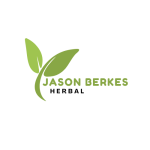The quest for radiant, healthy-looking skin often leads us down a path of chemical-laden products and harsh treatments. However, nature offers a gentler, more sustainable solution. Herbal alternatives have been revered for centuries, offering a holistic approach to skincare that nourishes the body, mind and spirit. In this article, we’ll delve into the world of herbal skincare, exploring its benefits, popular herbs and practical applications.
A Brief History of Herbal Skincare
Herbal skincare has its roots in ancient cultures, where plants were revered for their medicinal and cosmetic properties. From Ayurvedic rituals to traditional Chinese medicine, herbs have been used to promote healthy, glowing skin. Today, we’re rediscovering these timeless remedies, combining ancient wisdom with modern innovation.
The Benefits of Herbal Skincare
- Natural and Non-Invasive: Herbal skincare offers a gentle alternative to harsh chemicals and invasive treatments.
- Customizable: Herbal blends can be tailored to address specific skin concerns, from acne to aging.
- Holistic Approach: Herbal skincare encourages harmony between body, mind and spirit.
- Environmentally Friendly: Sustainable and eco-conscious, herbal skincare reduces waste and supports local sourcing.
- Cost-Effective: Many herbs can be grown or sourced affordably.
Popular Herbs for Skin
- Aloe vera: Soothes irritation, hydrates and calms.
- Calendula: Antimicrobial and antioxidant properties aid in wound healing.
- Ginkgo biloba: Anti-aging properties stimulate collagen production.
- Green tea: Antioxidants protect against environmental stressors.
- Turmeric: Anti-inflammatory properties brighten and even skin tone.
- Neem: Natural antiseptic and antifungal properties aid in acne treatment.
- Rosehip: Vitamin C and essential fatty acids promote collagen production.
Practical Applications
- Infused Oils: Steep herbs in carrier oils for nourishing skincare products.
- Herbal Teas: Utilize herbal infusions as toners or skin compresses.
- Face Masks: Blend herbs with natural ingredients for rejuvenating treatments.
- Serums and Essences: Concentrate herbal extracts for potent skincare solutions.
- Herbal Steam Baths: Relaxing and purifying, herbal steam baths open pores.
Modern Twists and Innovations
- Herbal-Infused Skincare Products: Brands incorporate traditional herbs into formulations.
- Customized Herbal Consultations: Skincare experts offer personalized guidance.
- Herbal Skincare Workshops: Hands-on learning experiences teach DIY skincare.
- Herbal Skincare for Specific Skin Concerns: Tailored approaches address acne, aging and hyperpigmentation.
Tips for Getting Started
- Consult with a Healthcare Professional: Before introducing new herbs, especially if taking medications.
- Patch Test: Ensure you’re not sensitive to specific herbs.
- Start Small: Begin with gentle herbal infusions or DIY recipes.
- Explore Local Herbalists: Support local experts and artisans.
- Research Evidence-Based Herbal Skincare: Stay informed about proven herbal remedies.
Overcoming Common Challenges
- Standardization and Quality Control: Ensure proper herb identification and sourcing.
- Shelf Life and Storage: Properly store herbal skincare products.
- Allergic Reactions: Monitor skin sensitivity.
Conclusion
Embarking on an herbal skincare journey offers a transformative path to radiant, healthy-looking skin. By embracing nature’s wisdom, we can move beyond harsh chemicals and discover a more sustainable, holistic approach. Join the movement, and unlock the potential of herbal skincare.


